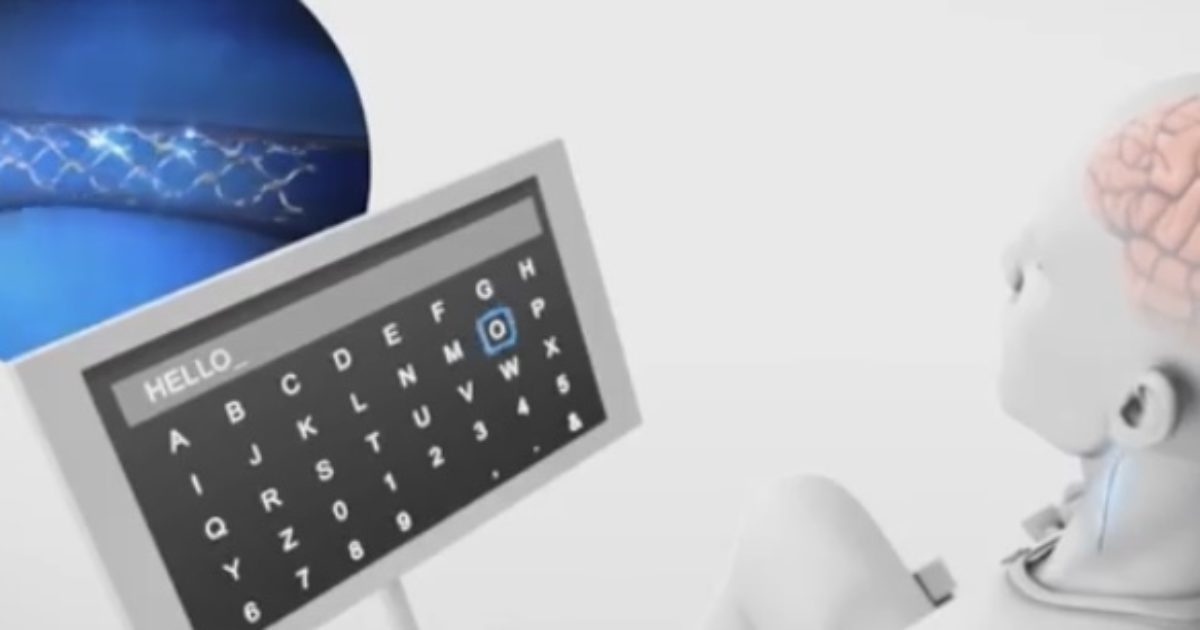New York-based Synchron successfully implanted its first brain device in a patient in the United States earlier this month, according to Bloomberg.
In August 2020, Synchron became the first brain-computer interface (BCI) company to receive FDA approval to conduct an investigational device exemption (IDE) clinical trial of a permanently implanted device.
Via Business Wire:
Synchron, a neurovascular bioelectronics medicine company, today announced that the U.S. Food and Drug Administration (FDA) has granted Breakthrough Device designation for Stentrode, a fully-implantable medical device that can translate brain activity or stimulate the nervous system from the inside of a blood vessel, without the need for open brain surgery. The device, which has already been implanted in patients with upper-limb paralysis, is currently being evaluated for its ability to enable patients with paralysis to regain functional independence by control of digital devices through thought alone. The Breakthrough Devices Program is designed to expedite the development and FDA review of innovative solutions for more effective treatment of irreversibly debilitating diseases or conditions, among other purposes, and will lower the burden required for Medicare reimbursement.
“As this is a first-of-its-kind device, we look forward to working closely with the FDA to prioritize development of the Stentrode and ensure access for patients with paralysis, as well as lay the groundwork for future indications for brain-computer interfaces,” said Thomas Oxley, MD, PhD, CEO of Synchron.
The NIH awarded Synchron a $10 million grant to kickstart the trial that implants the brainwave-reading device and monitors its effects on each patient, Fierce Biotech reported.
Synchron’s product is called brain.io™, according to its website – “a motor neuroprosthesis – designed to bypass damaged neural pathways in patients with severe paralysis, allowing them to restore motor capabilities including control of digital devices.”
“Our neuroprosthetics are designed to help people get their lives back by restoring lost functions,” the website states.
According to Bloomberg, a doctor at Mount Sinai West Medical Center in New York inserted a “1.5-inch-long implant consisting of wires and electrodes into a blood vessel in the brain of an ALS patient” on July 6.
The hope is that the patient, who’s lost the ability to move and speak, will be able to surf the web and communicate via email and text simply by thinking—the device will translate his thoughts into commands sent to a computer.
Synchron, the startup behind the technology, has already implanted its devices in four patients in Australia, who haven’t experienced side effects and have been able to carry out such tasks as sending WhatsApp messages and making online purchases. The recent procedure was the first the company has done in the US, putting it ahead of competitors including Elon Musk’s Neuralink Corp. “This surgery was special because of its implications and huge potential,” says Dr. Shahram Majidi, the neurointerventional surgeon who performed it.
Here’s an illustration of how brain.io™ works:

The device operates with the following steps:
- The stentrode™ is an endovascular implant, placed in a vein alongside the motor cortex which generates any signal related to movement.
- A receiver device implanted in the chest transmits the neural signals to a decoder.
- A machine learning algorithm translates those signals into specific digital commands.
Elon Musk’s company, Neuralink, has yet to receive FDA approval.
Musk said Neuralink’s technology “will enable someone with paralysis to use a smartphone with their mind faster than someone using thumbs,” The Guardian reported.
On Monday, Musk responded to a tweet that asked, “if you could upload your brain to the cloud, and talk to a virtual version of yourself?”
Musk tweeted, “Already did it.”
Already did it
— Elon Musk (@elonmusk) July 19, 2022



Join the conversation!
Please share your thoughts about this article below. We value your opinions, and would love to see you add to the discussion!